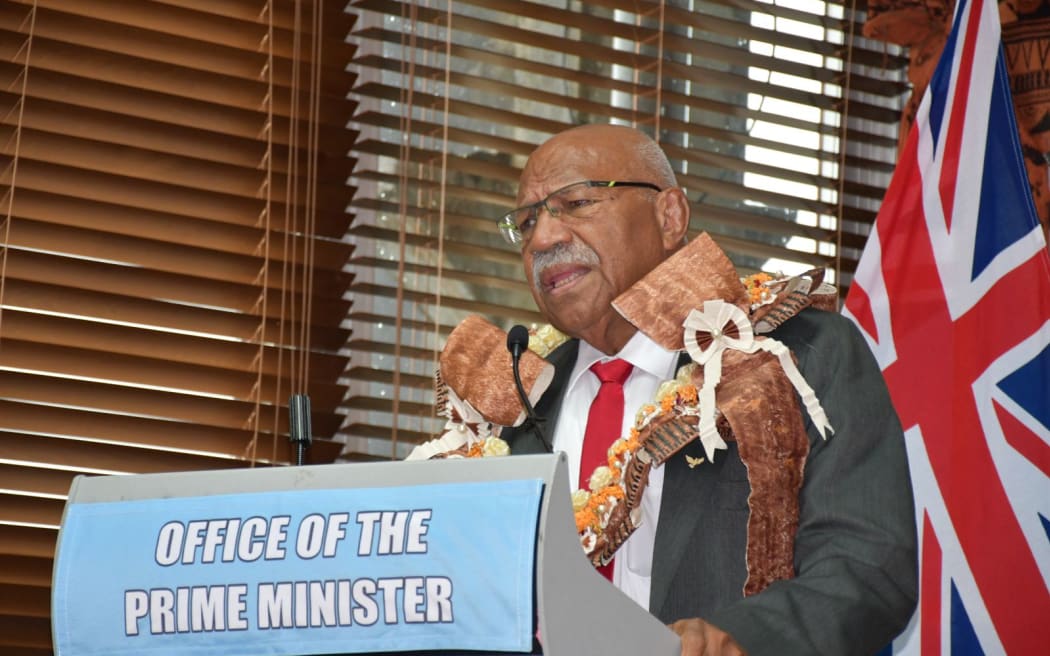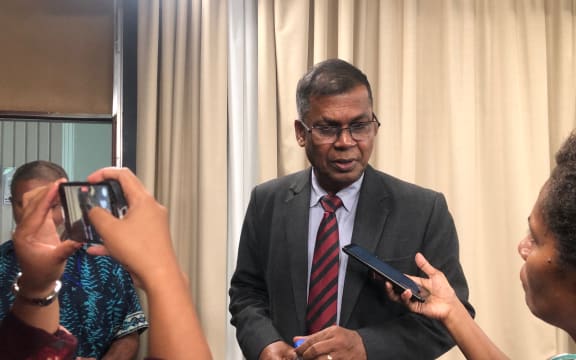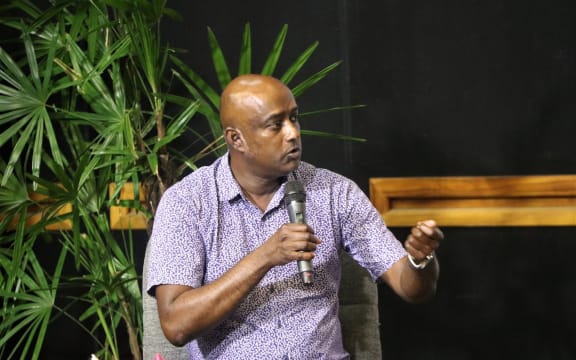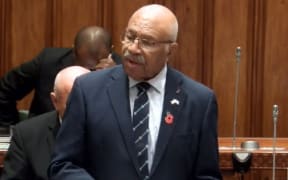
Photo: Fijian government
Fiji's Prime Minister says Friday's national budget will not be business as usual.
Sitiveni Rabuka delivered his state of the nation address on Wednesday night, less than 48 hours before the announcement of the 2023/24 budget.
This Budget will outline the government's financial roadmap to deliver Fijians from the current economic crisis.
Rabuka told the nation, "to rebuild; it will not be business as usual... some sacrifices and collective commitment will be needed to address the 'troubled economy'."
"Although our economy has shown growth in the last 12 months, due primarily to the tourism sector, the government now needs to consider some hard decisions to keep us on that trajectory," Rabuka said in his televised address to the nation.
"We are only just rising from the pit that we fell into during covid-19 and the poor management of the economy by the previous government."
In 2020, Fiji's economy took a major hit with debt levels of more than $FJ9 billion, about 80 percent of the GDP, as a result of the global pandemic, coupled with multiple tropical cyclones.
Recently the economic woes have been compounded by the effects of Russia's war on Ukraine.
The People's Coalition government is ready to "roll up its sleeves" to find a solution while still delivering on the expectations set during the campaign trail six months ago.
"All this uncertainty has forced the whole world to make necessary structural adjustments, and Fiji is no exception," Rabuka said.
For the government, a solution lies in creating a people-centred, balanced and resilient economic agenda while still delivering on core services, investment in health and skill development, and improving infrastructure.
Extra revenue needed

Photo: RNZ Pacific/Kelvin Anthony
To deliver on these outcomes, the government needs the financial backing that its coffers can simply not provide.
Finance Minister Biman Prasad (right) calculates Fiji needs at least $500 million in additional revenue to witness a substantial shift in its fiscal status.
Prasad suggests tightening the belt on tax reforms and the government's expenditure.
"One, of course, is making sure that we are able to collect enough revenue, that we look at our tax base and other revenue sources so that we are able to collect enough because we want to spend enough.
"But more important than that is, as part of our fiscal consolidation, we want to ensure that we cut down on wastages; we look at the priority."
The 2023 Fiscal Review Committee, while developing the appropriate expenditure, revenue and taxation regulations for the country, suggested raising revenue through increased tax collections to address the nation's economic woes.
"We will be raising the main corporate tax rate; this will collect an additional $70m a year," Prasad said.
"We will be phasing in increases in departure tax between now and 2025, in consultation with the tourism industry. This will raise an additional $70m when it is fully implemented."
He added that increases in customs and excise duty, including on alcohol, would generate another $100m.
"Those on a $30,000 salary or less, they need to be cocooned to stay above the poverty line," he added.
Warning of more pain

Dr Neelesh Gounder. Photo: University of the South Pacific
Economist and senior lecturer at the University of the South Pacific, Neelesh Gounder, cautions government spending to focus on debt repayment.
"If the government increases taxes, both individual taxes and company income taxes, then it must ensure that it is able to use the additional revenue in reducing the debt, which will be important from a broader economic perspective."
"If that is not controlled or reduced now, then it will bring more pain into the future."
Gounder told RNZ Pacific that if a tax increment was included in the Budget, then the government needs to cushion the effects for lower-income earners.
"Tax changes will have an impact on houses and businesses, so what else can the Budget provide that can offset some of the impacts of any increase in taxes," he said.
It's been eight years since Fiji has witnessed a tax increment.
"Using a number of strategies or balancing approach government could be utilised to deal with the impact of increasing VAT, but also the increase in revenue," said Gounder.
"Some of these benefits to households to offset the impacts of taxes may not be seen immediately. But maybe my benefit that was also in the medium to long run."
This financial crossroad proves to be very crucial for Fiji's economy, and the government has a mammoth task in allocating this Budget for the next financial year. Whether it can deliver on its ambition outcomes is yet to be decided.


